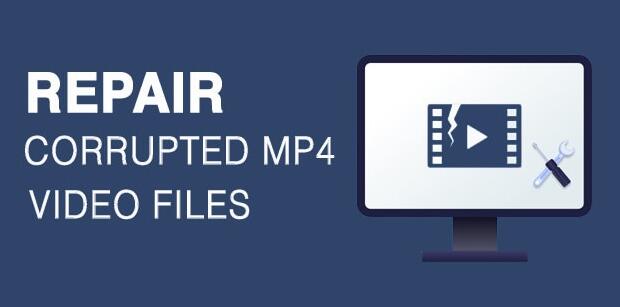It sounds like you might be dealing with a corrupted or unsupported MP4 file.
Understanding the Problem
1. File Corruption:
A file becomes corrupted when its data becomes unreadable or incomplete. This can happen due to various reasons such as abrupt shutdowns, file system errors, or software glitches.
2. Unsupported Format:
Sometimes, an MP4 file may not play if it’s encoded with a codec or a format that is not supported by your media player. MP4 is a container format that can include different video and audio codecs, so compatibility issues can arise.

Diagnosing the Issue
1. Check File Integrity:
File Size: Compare the file size with a known good copy. A significantly smaller file might indicate corruption.
File Extension: Ensure the file extension is correct (i.e., .mp4).
2. Try Different Media Players:
Use alternative media players such as VLC Media Player, which supports a wide range of codecs and often handles corrupted files better.
3. Verify Codecs:
Codec Information: Use a tool like MediaInfo to check the codecs used in the MP4 file. Ensure your player supports these codecs.
Repairing Corrupted MP4 Files
1. Use Built-in Repair Tools:
VLC Media Player: VLC has a built-in repair feature for corrupted MP4 files. You can use it by following these steps:
Open VLC and go to Media > Convert/Save.
Add the corrupted MP4 file and click on Convert/Save.
Choose a format and click Start. VLC will attempt to repair the file during the conversion process.
2. Use Dedicated Repair Software:
Stellar Phoenix Video Repair: This tool can repair corrupt MP4 files and supports batch repair.
Yodot MOV Repair: Although primarily designed for MOV files, it can also repair MP4 files.
3. Repair via Command Line Tools:
FFmpeg: FFmpeg is a powerful tool for video processing. You can attempt to repair a corrupted MP4 file using the following command:
bash
复制代码
ffmpeg -i corrupted.mp4 -c copy repaired.mp4
This command reprocesses the file, which may fix minor corruption issues.
Preventing Future Corruption
1. Back Up Your Files:
Regular backups to reliable storage can help avoid data loss due to corruption.
2. Proper Shutdowns:
Ensure you properly eject external drives and close applications before shutting down your computer.
3. Use Reliable Storage Devices:
Invest in high-quality storage devices and replace them when they start showing signs of failure.
Handling Unsupported MP4 Files
1. Convert the File:
Use a file conversion tool to convert the MP4 file into a format that is compatible with your media player. Tools like HandBrake or online converters can be useful.
2. Update Your Media Player:
Ensure your media player is up-to-date. New updates may include support for additional codecs and formats.
3. Check for Codec Packs:
Install codec packs like K-Lite Codec Pack, which can add support for various codecs and formats.
Handling unsupported or corrupted MP4 files can be a bit challenging, but with the right tools and methods, you can often recover or convert your files to make them usable. Regular backups and proper handling of files can significantly reduce the risk of future issues.
About us and this blog
Panda Assistant is built on the latest data recovery algorithms, ensuring that no file is too damaged, too lost, or too corrupted to be recovered.
Request a free quote
We believe that data recovery shouldn’t be a daunting task. That’s why we’ve designed Panda Assistant to be as easy to use as it is powerful. With a few clicks, you can initiate a scan, preview recoverable files, and restore your data all within a matter of minutes.
Subscribe to our newsletter!
More from our blog
See all postsRecent Posts
- Recovery ssd upgrade failed exagrid error 2025-04-03
- Smart hard disk error 301 2025-04-03
- Error code 36 external hard drive 2025-04-03










